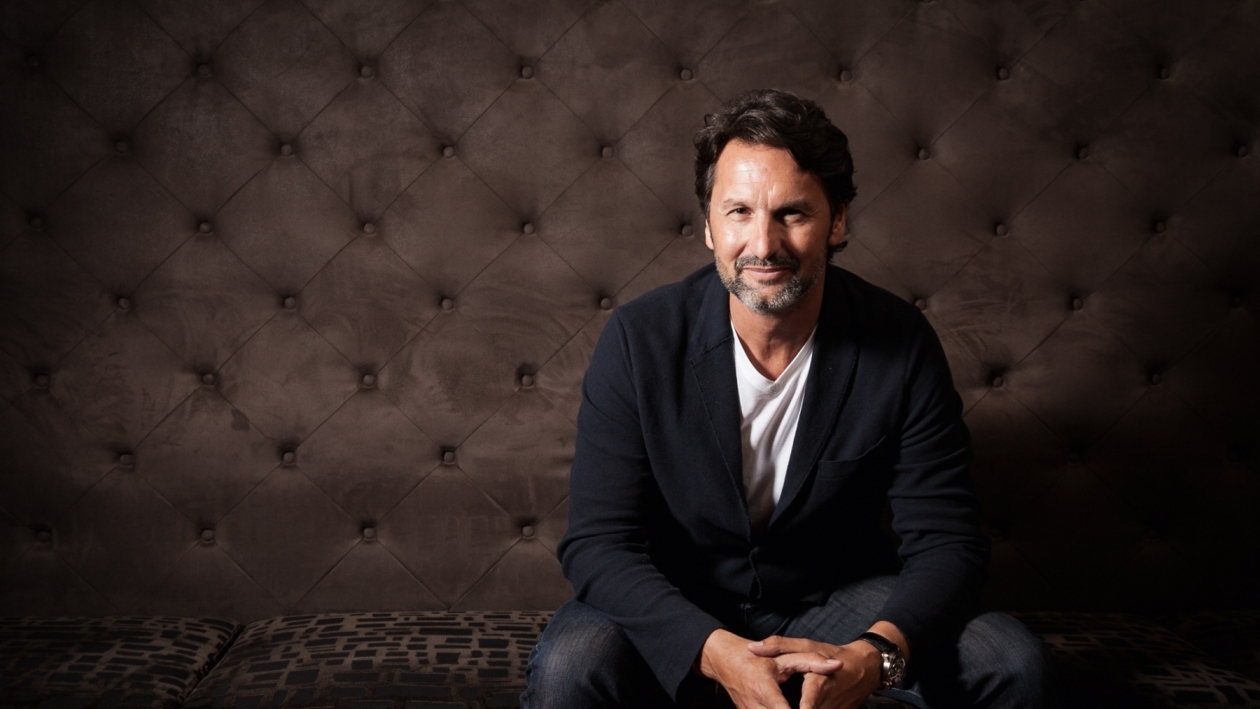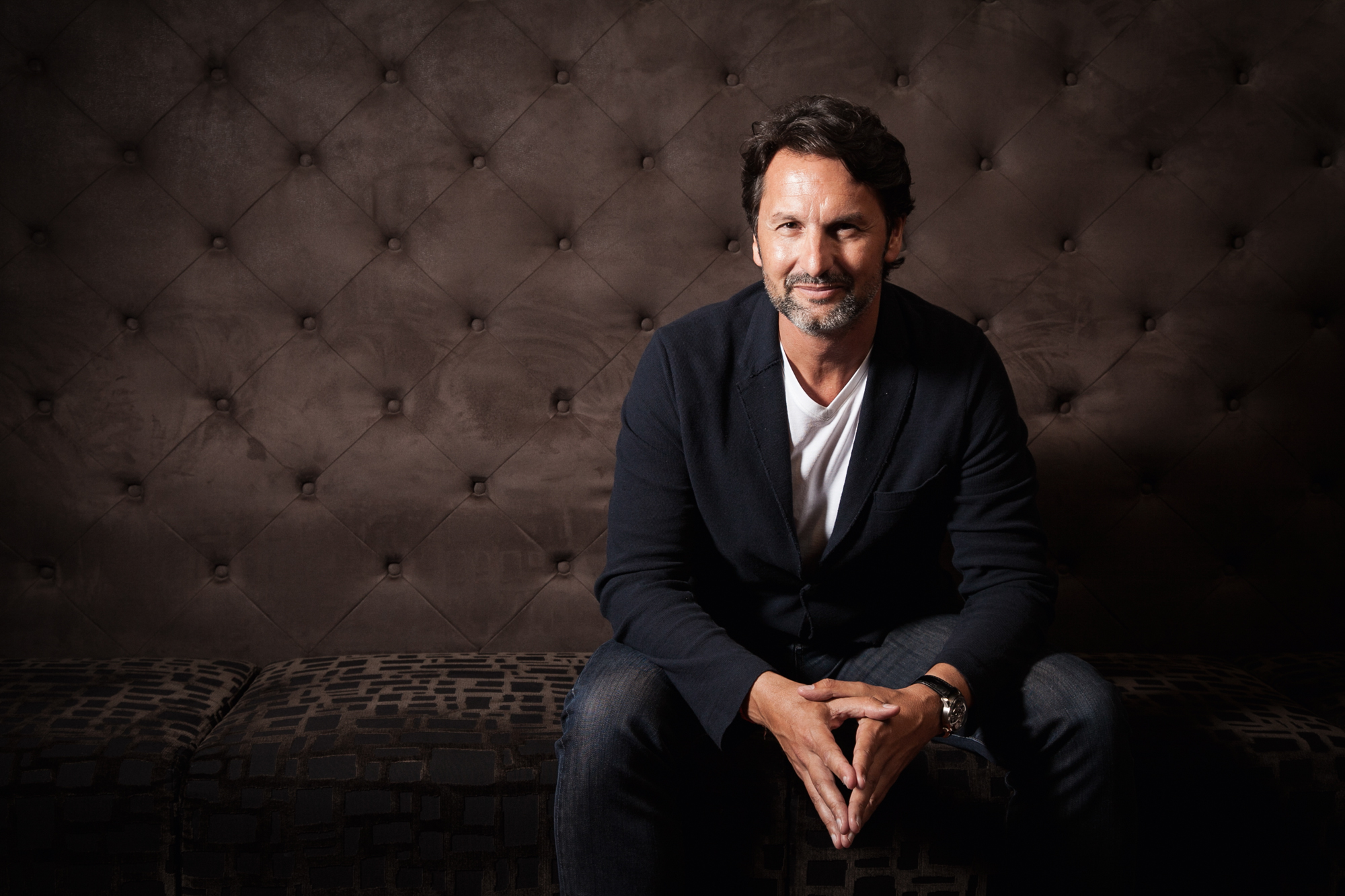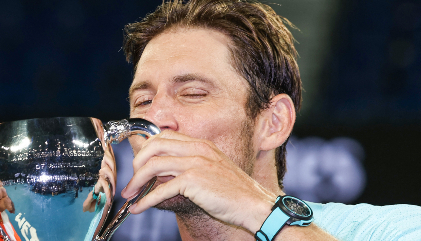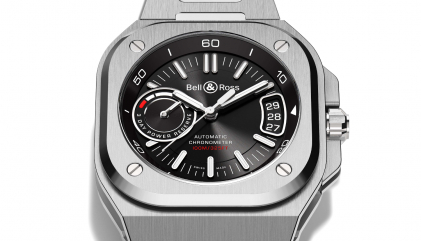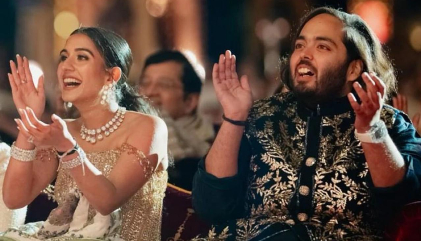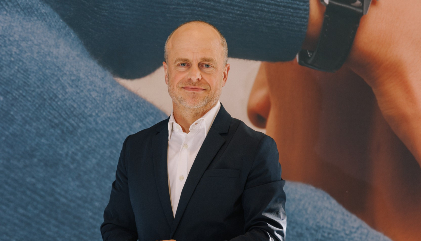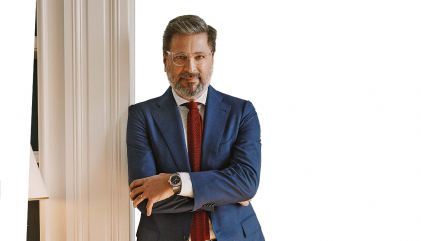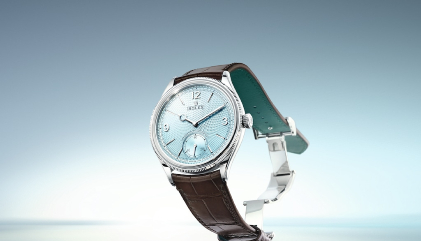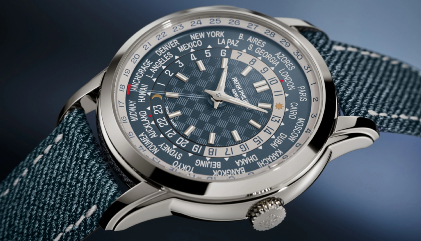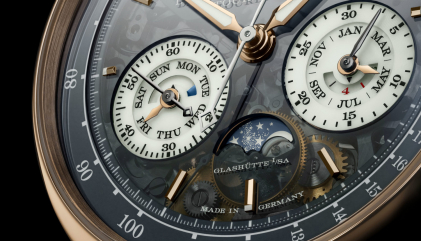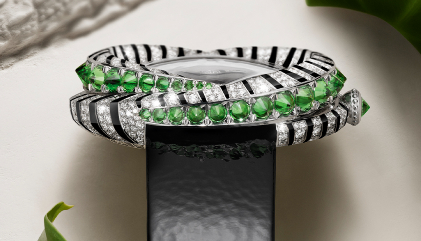WTI: What is that one belief which resonates throughout your brand?
MB: Have you heard of Ursula K. Le Guin? MB&F's baseline takes inspiration from her quote “the creative adult is the child who survived”. It was this very saying that really got me started and made me realise that I had truly killed the child in me. As a young adult I was probably the most boring person of all humanity. I've always been a geek and a nerd throughout childhood and that meant being the child who didn't fit in. I always dreamt of having friends – and what do you know, 40 years later I called my brand “and friends”, haha. When I grew up, I became a vey boring young adult. It took me a long time to find myself and to get my mojo back. I started working at 24 and I created MB&F at 38. It took me 14 years to realise my journey, and once I did, I discovered that hidden child in me.
WTI: I'm sure the MB&F part of you was always inside you?
MB: It was completely buried. It's that phrase which actually got me started thinking. How is it that our creativity gets eradicated as we grow up? 95% of all adults are non-creative people, even though they all think the exact opposite. I found the answer in one of the most viewed (42 million ) TED talks by Sir Ken Robinson. His answer explained everything. Education is the only 'privilege' which kills the creativity in a child – and that got me thinking, “children are creative because they are not afraid of being wrong”.
Take my four year old daughter, for example. She draws all the time, she sings, she invents stories, she's a ballet dancer, she's this, she's that and when she was like two and a half years old, she was busy drawing and she drew what I think is a potato and when I asked her what it was, she said it's a house. So, my first reaction as a parent is that of course not, this is not a house, it's a potato. But instead I went, great, the potato house is a very cool house. But then six months later she started drawing houses exactly how all the kids were drawing it, and I was like, what happened? School happened. She learnt that in school. So, we're telling them that this is what the reality is. You can't be wrong, you have to be right, and that I think is one of the many important factors that MB&F is today. I am not scared of being wrong anymore, in every single think I do. Don't get me wrong. Of course, I'm scared de facto and all, but I'm not scared of failing and I think that's the most important thing we need to accept in this industry. I've failed before and I've done things which didn't work out, and took decisions which probably I regret. But at the end of the day, I tried. And the whole point of MB&F is that.
When I started the company, I realised I was ready to fail and lose all my money. But I would have been so disappointed with myself if I hadn't tried. So, I ask a lot of inspiring entrepreneurs, why do you want to do this? And I tell them, don't do it for the money or the fame, do it because it's your calling and your belief. Mind you, you most probably will fail, but you will look at yourself with pride about the fact that you tried. Most people spend their lives not trying, and they die. So, that's something which is important for me.
WTI: What are some of the other values followed in MB&F?
MB: Apart from the one on creativity, another very strong belief I abide by is, “treat people the way you want to be treated”. Everything in the company is around that. The way we treat our employees, the people who work with us, our retailers, our clients. When we did our 10th anniversary, my whole team went up against me because instead of doing the most complicated piece as a celebration, I took one-third of our production and gave it away. We didn't make a margin on it. When your brand makes a profit of like maybe 3% - which has been our highest – whatever margin you make is actually what's covering your operating costs. When you sell without a margin, you're actually losing a lot of money. But I still wanted to appreciate my partners, and I did this little experiment with our HMX. The retailers made the money, we didn't. I still remember, the day before Basel when we were going to reveal the watch at that price, my technical director who is also my partner in the company and the sales head, he closed the door and he asked me, tell me we're not going ahead with this? I said yeah we are. He said, and it was true, 'this is insane because we were in real jeopardy in 2014 and come 2015 you're giving one-third of our production away? I'm very scared about the positioning of the company.' And I said, I get that, but we have to give back. If we've done 10 years, it's because for 10 years people have actually bought our pieces.
WTI: How was the response?
MB: It was crazy. When we launched it in June, I think honestly all 80 pieces got sold out in 4 days. I've got customers who bought four pieces together. So, everybody went nuts. The retailers made their money – it was my way of thanking them for supporting me. I'm the sort of person
who hates receiving gifts but I love giving them. So, there you go. Treat people the way you want to be treated.
WTI: How did the M.A.D. Gallery become a part of MB&F?
MB: That was the next step. I think before you can help anybody you have to help yourself, and I really needed to help myself since a very long time. It's also one of the reasons I became a father much later in life. I wasn't ready and honestly, maybe I was just very selfish. I started working on myself and coming from where I do, it's moments like these when you realise that it's time to give back.
A year before I started the gallery, I saw this lamp by Frank Buchwald which I really liked and wanted to buy. But when he quoted the price as 6,000 euros, I was in shock because that was an insane amount to pay for a lamp! When I spoke to him, I realised why. These artists make every small component from scratch and they don't get featured in the usual, normal galleries. Now, Frank had been a very famous science fiction illustrator – he used to paint every single scene of a film. With the onset of CGI, he found himself out of a job. This was 18 years ago. Now, during this tenure, instead of sitting idle, he learnt how to work on machines and started creating these lamps. There was no marketing, no promotions, but the lamps started selling. Today, he makes four to five lamps a year, supplies them to us, and then we sell it.
So, the pieces of work on display at the M.A.D. Gallery all have a story behind them. A story of perseverance, of passion, and of true creative talent. I feel very self-conscious presenting my art, and presenting someone else's talent is so much easier for me. I'm at a point in my life where helping people like Frank whose art wont or doesn't get displayed anywhere else, makes me ten times more happy that selling one or two or ten more watches of mine. That's where I am and i'm in a happy place.
The M.A.D. Gallery has made me realise I'm not a person who does charity. I've never given money to a charity. I'm not proud of it but I'm not ashamed of it. I help people. I actually help people who deserve it – I help their art, their talent. I give an amplifier to their talent and it's something I could completely go out of my way for. But first you need help yourself like I did for 20 years.
WTI: How does your Indian origin – from your mother's side – add to your personality?
MB: Definitely in the way I function. My life has always been about balance, and I was not in balance for a very long time. I'm half-Swiss, half-Indian, my father was a very frugal, Swiss-German, and my mother is Indian - she's warm, fuzzy. But both my parents are very generous. She's from Madhya Pradesh, her family is from a place next to Indore. And she's a Parsi who abides by the Parsi good words, good thoughts, good deeds. I sat down with my mum, 3-4 years ago, she's 83 now, and I said I've never heard you or dad ever say anything nasty about anybody. Not even something snarky or ironic. She just looked at me and she said, why would we? These are the people who brought me up.
When I started out, I was very Swiss. - very cerebral. I would not let my emotions take over because my emotions were in an unhappy place. I was lonesome, I felt not loved, not appreciated by people around me and therefore I couldn't let my emotions flow out. So I became like this German-Swiss guy and then luckily over the years afterwards, I regained my Indian side. I regained my emotional side, my vibrant side, my extrovert side. I used to be the biggest introvert which seems quites unbelievable now. It was a whole process, a whole journey of 20-25 years to get out of that and I was recapturing my Indian side. Luckily my mum was there in my life because if I'd had two Swiss-German parents, I would have been in a lunatic bin. That was probably one of the things that saved me.
WTI: Have you always had an interest in art and mechanics?
MB: I'd always wanted to be a car designer. From the age of four to fourteen years old, I drew cars absolutely everywhere. And when I was 18, the University of Pasadena - which is the biggest car designing university in the world - opened their European branch in Switzerland, around 20 minutes from where I lived. So, during my baccalaureate, I told my parents that that's where I want to be. My dad said, ok, how much will it cost? It was 50,000 Swiss francs a year – 32 years ago. Now, today it wouldn't be that humungous an amount of money. Back then, it was. My parents, were completely middle class and when I told that to my dad he went white. And he said ok give me some time. A week later, he sat me down and he said, it's an enormous amount of money but we'll find it so go and apply. And something in me changed that time - even though unfortunately my dad and I, we didn't get along, and I've already probably mentioned it a couple of times, it's my most enormous regret in my life – and I said forget about it, I'll do my engineering from the local university which is subsidised, and I'll do car designing after. It's after this that I found watchmaking which combined both art and mechanics and since then, there's been no turning back.
WTI: Do you think that today, you'd want to keep that option to shift out of the watchmaking industry to the automobile industry?
MB: Oh God no. When I see what the automobile industry has become, I am so glad that I didn't go down that way. It's become a soulless,
marketing financial machine. Between the wind-tunnels, the marketing managers and the CFO's, they've killed cars. There's absolutely no creativity and they are no longer works of art. The cars today all look the same.
Sadly, that's exactly what's happening in the watch industry too. Twenty-five years down the road, between the CFO's and the CMO's – thankfully we don't have any wind tunnels - we have eradicated anything which had character, and I see the offer which is in hand now, I question them, seriously guys, what are you doing? I mean, it is a little understandable, it's logic. I don't condemn it, but I am sad about it. The independents today don't create in fear of being liked by the clients and that brings us to the full turn of our conversation, everyone is scared of being wrong and that's the biggest problem of these large entities. You don't take risks. You don't “create”.
WTI: So demand before supply or supply before demand?
MB: As an artist of course supply is everything. How did Steve Jobs revolutionise our world? Not by asking people what they wanted, but by doing what he thought was good.
WTI: Talking brands, what would you prefer an Apple or a Samsung?
MB: Oh, I've got a Samsung. But the Steve Jobs philosophy is something I would want. He's gone now and you can see the difference. Big time. Now clearly, they are doing more market focused products. It's funny, because I was reading Steve Jobs' biography when it had come out a few years ago, and he had this incredibly hard saying, “Bill Gates wanted to be rich and the world is poorer for that. I wanted to create insanely great products and the world is better for that”, - and I just totally agree. Anybody who has used Microsoft, would know the difference. Now, the reason I've got a Samsung is because they listened to the demand and created the product – in my case the demand was a dual sim. I've got two sim cards – one for Switzerland and one for Dubai – and I just don't want to have two phones. As an engineer, honestly, - like Andy Rubin the creator of Android, a dear friend, and a client of MB&F – I can find everything I want in this operating system. On an iPhone, if somebody doesn't tell me the trick, I am lost.
Coming to the watch industry, it's completely different. What we do is not practical at all, and any brand that thinks he's being practical in this industry needs to be put in a looney bin. We create pieces of art which are completely pointless. Unfortunately, they are now morphed pieces of status, which is what makes me even more sad than anything else in my entire history. We're at a point where we've lost the humanity of our industry. The humanity of being incredible artists and creators who create the objects, not promoting the guy who runs 100m faster than the other and by the way also likes that watch. No, that's not the humanity. The humanity are the creative people who've created these pieces. We don't talk about that anymore. What interests me in a creative product is the creator and the artisans that created it. I don't wear or buy anything so that people think I am successful. I think that's so lame. But that's how the world works.
WTI: How do you balance the creative and the business side out?
MB: When I create something, I never ever put in what the customer or client or marketer intel wants. A day before the SIHH last year, when I
came out with the Aquapod, we were all having a discussion about who is ever going to buy this watch? It's a 54mm watch – a diving watch that you can't dive with. I'm so proud of that piece – the work is amazing, the story is amazing, every single thing we did to make that piece is crazy. Even the engraving on the ceramic bezel was done by a guy in Korea because we couldn't find a guy in Switzerland. All that craziness we did it with, we're so proud of that piece but we have no idea if any body is going to buy it. The end result was, we did 55 pieces this year (2017) and we just have 2 left in stores and retailers are screaming for it.
You know, every time I've done a piece that I was terrified of, they've been our greatest successes. So now, it's coming to me, if I come out with a product which doesn't terrify me, it probably won't be a success. So i'm stuck in a complete reverse situation, but I've also realised that pride only comes from taking risks. And as pride is the motto behind what we do, it's all about coming out of the comfort zone for us. All about taking those risks.
WTI: What inspires your watches?
MB: The creative process is weird in the fact that, initially it was very much my childhood. But again, I didn't realise it until I started seeing the pieces arrive. Like the Spaceship – first I just started drawing and suddenly there are these ideas going around in my head and it all shaped up. It's after that that I analyse where the ideas come from.
There are some exceptions, like the HM7 Aquapod – the true story behind that watch revolves around my wife going into the sea and getting stung by a jellyfish, five years ago. We sort of just looked at them and thought it would be so cool if it's mechanical and so that came out of that.
I can tell you one thing though, ideas come when I am not working. Ideas don't come when I am talking with people, they come when I'm alone and that's why in Dubai I've created 10 times more in the last three years than I have in the nine years before that. And it's not in the workshops. I am not in my office or at my desk – I try and give myself an hour every two days in the garden to just sit on a chair and just stay and think. That is a luxury, which in our world with all social media and all, we don't have anymore. Sometimes I fall asleep, honestly, but sometimes I think of the business, my family, sometimes of just creating something and the sparks start and voila, I just start. It's so much fun. That is one of the many luxuries of my life.
WTI: Which markets do particularly well for you?
MB: We did very well in Southeast Asia in the initial five to six years but onlybecause we had a fantastic partner called The Hour Glass in Singapore. Now, one of my prime objectives of last year was to equalise my risks. I keep taking so many creative risks that business wise we have to equalise them. So, today, Asia is 35% of our business, America is about 25%, 20% is our MAD Gallery in Geneva, and 20% is Europe and Middle East. So, basically, more or less, one-third Asia, one-third Europe and Middle East, and one-third America.
WTI: Do you also get a lot of Indian clients?
MB: That's interesting because just recently, our London retailer whatsapped me asking what I was doing in India. And I said nothing. He said we're getting more and more Indian clients who are asking for MB&F. Same thing in Dubai and in Singapore, all of them looking for the brand. But we don't do anything – no PR, no marketing, nothing. It just happened. What is really interesting is that most of them have no idea that I'm half Indian, or that there is a Max Büsser. It's been just 14 years of the brand, our calibers and Instagram. Instagram has helped us a lot. I think in India, it's basically been Instagram which has been helping us a lot - by what I hear.
We live in a global world, so much so that my client in Taipei, is the same in Dubai, same in Singapore, and same in Bombay. They may not be the same people culturally speaking, but they're the same people in character. If you own an MB&F, you're a very creative, self-asserted individual. You're definitely not a person looking to show-off, because a person who wants to show off, is looking for three things – everybody needs to recognise what he's wearing, everybody has to know the price, and lastly, everybody has to be jealous. Unfortunately, status is driving the biggest part of the industry. In one way it's letting artisans live but I feel sad that these beautiful works of art are bought just to show off instead of understanding what's in it.
The most important etiquette of watch buying is, you should know what you're buying.
WTI: Are you planning on entering the women market?
MB: So, for 12 years I've created completely gender-neutral pieces, because in my opinion a women's watch is not a small watch with diamonds. Almost 10-15% of my pieces which are bought and worn by women. We create machines. What actually does matter is the size which may make some of our timepieces too large for a woman's wrist.
I recognised a few years ago that my whole family today comprises of only women – my mother, my wife, and my two daughters. At MB&F I've always created for myself. I've got a very dominant feminine side and I know it. So that's why I consider what I do is very gender-neutral. I don't create macho watches – aviation, divers etc.
Now, I've got this task that I've set to myself to create specifically for the women in my life. It will take some time to get there because this product is not for me. And as I've lost the habit to create something for someone else, this will take some time.
WTI: Any plans for entering the Indian market?
MB: India is an important market for me, but sadly, most of the Indians I have crossed in my life are very ethically challenged. I've always lived my life according to very strong ethics and have never been able to find common ground with them. They're just interested in making money fast, no matter whatever, and that's not at all my driver so I would say no, I'm not interested. I am taking my time.
WTI: Your views on e-commerce?
MB: E-commerce will submerge everything into it. Everybody tells me that though your watches look good on screen, they look ten times better in real. According to me, e-commerce will not kill retail but it'll definitely halve it. One of the biggest issues we have in this industry is the weakest link – and out of the whole industry, that link is the only one who actually speaks to the client. It's the salesperson. The level of education and competence the salespeople have in stores is appalling – and its everywhere, some worse than others.
Answer me this, how arrogant are we as an industry that we have to force people to come to some sort of destination/store at a given time to listen to some incompetent sell us something that we already want. We're insane. Why couldn't that person, just open the iPad and buy the piece easily because he wants it. Why couldn't that happen?
The question on convenience and humility of the brands is something that's at play here. Our brand has been doing e-commerce since the beginning. We don't offer discounts but we hand-deliver our products from the store to anywhere in the world.





